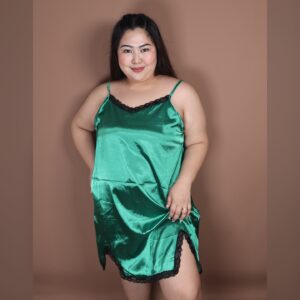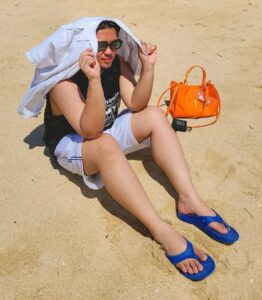In the world of fashion, marketing is more than just flashy visuals and catchy slogans — it’s about how brands connect with their consumers. For the plus-sized Gen Z and Millennial community in Metro Manila, this connection can either empower or exploit. That’s why it’s important to understand the difference between ethical and deceptive marketing practices — so consumers can make informed choices and demand fairness in fashion.
What is Ethical Marketing?
Ethical marketing is grounded in honesty, transparency, and respect for consumer rights. It involves advertising and promotional strategies that:
✅ Present accurate product descriptions
✅ Represent models that reflect the intended audience
✅ Disclose terms and conditions clearly
✅ Promote diversity and inclusivity in media representation
✅ Follow legal frameworks like the Consumer Act of the Philippines (RA 7394) and the E-Commerce Act of 2000 (RA 8792)
For plus-sized consumers, ethical marketing looks like:
- Using models that genuinely reflect plus-sized body types
- Providing precise measurements instead of vague labels like “free size” or “one size fits all”
- Showing the actual texture, fit, and quality of the garments
- Creating campaigns that uplift and celebrate all body types
Ethical marketing isn’t just about following rules — it’s about valuing customers. For plus-sized individuals, it’s a confidence boost, a sign that their bodies matter, and a push toward a more inclusive industry.
What is Deceptive Marketing?
On the flip side, deceptive marketing uses tactics that mislead or manipulate consumers. In fashion, these underhanded methods often include:
❌ Misleading product photos that don’t match the actual item
❌ Models who do not reflect the product’s sizing reality
❌ Vague descriptors like “free size” that exclude body diversity
❌ Heavily edited or filtered images presenting unrealistic expectations
❌ Lack of transparency about materials, sizing, or quality
For instance, a brand may promote a “plus-size friendly” item using a mid-sized model shot at flattering angles. When the consumer receives the item, it’s too small, poorly made, and nothing like what was advertised. This doesn’t just result in returns — it also fuels body insecurity and distrust toward brands.
Deceptive practices may not always be illegal, but they’re certainly unethical. They silence the voices of consumers who deserve honest marketing and reinforce harmful stereotypes that exclude plus-sized individuals from fashion spaces.
Marketing is powerful — but so are informed consumers. When we recognize unethical practices, speak up, and support inclusive brands, we take a stand not just for ourselves, but for a better, fairer fashion industry for everyone.
Written by: Sam Aniceto









